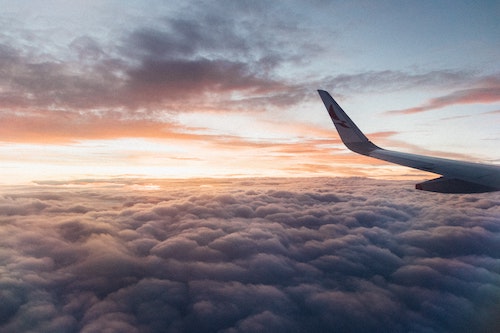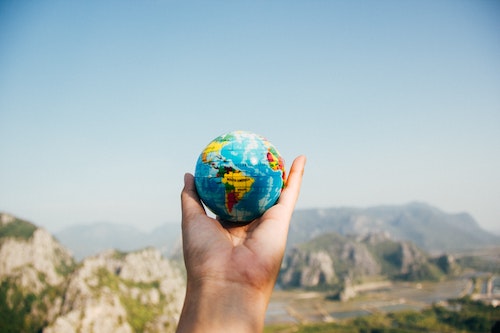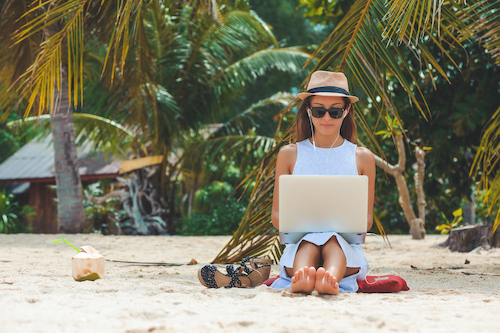Those of us who have already been working remotely for the past several years have recently started to notice a shift. Various spanners have been thrown in the works for digital nomads of late, from ever-changing visa and tax laws to the political instability of events such as Brexit, which threatened the way of life for many freelancers living, travelling, and working in Europe. Then of course, Coronavirus decided to throw its hat into the ring as well. It’s strange that, on the one hand, COVID-19 has opened up many doors in terms of remote work and flexible working hours. However, it’s also completely scuppered anyone living the ‘digital nomad’ lifestyle.For the uninitiated, a digital nomad earns their income online through various means, from freelance writing or designing, to youtube vlogs and website building. Digital nomads typically make the most of their flexible work to travel. Some may be constantly on the move, some may settle down for extended periods of time in each new country. In the last few years, the trend of digital nomadism has grown exponentially, more or less in line with the rise in bloggers, vloggers, and social media influencers.
A 2019 survey revealed 7.3 million workers in America alone described themselves as digital nomads, an increase of 2.5 million from the previous year.
Some digital nomads live this lifestyle purely to fund their travels, while others opt to travel and live in countries that allow their earnings to stretch a lot further. Many make the most of the low cost of living to start their own businesses. Whatever the reason or objective, many freelancers, remote workers, and digital nomads are all wondering the same thing: “what is the post-lockdown world going to look like?”
Ethical Questions
Is it ethical to travel post-lockdown?
Ethically, is it ok to go back to travelling, especially if you intend to travel to multiple countries? It’s difficult to say, because various governments and tourist boards are desperate to get the numbers back in, particularly over the summer period.

There are many countries all around the world whose economies rely heavily on tourism, and many of these have been very harshly impacted by coronavirus. The question should really be whether travellers can display due diligence and adhere to appropriate social distancing (among other measures), as well as the country’s competence in implementing effective precautionary methods.
Who can travel and where can they go?
Ultimately, the initial stages of post-lockdown will depend on a few personal factors, such as your nationality, your home country, and where you intend to travel to. Some countries are tentatively beginning to open their borders to tourists under various restrictions, but only to residents of specified countries at this time. If you’re lucky enough to come from a country that has either been relatively less affected than others, or has already hit their peak and is seeing case numbers fall, then you’re in for a better chance. Some countries have now got the situation under control enough to do away with mandatory quarantine and self-isolation prerequisites on arrival for visitors entering the country.
Timeout.com advise:
“Nations across the Mediterranean were among the first to welcome tourists again in May and early June, while destinations across the Caribbean and Asia have also confirmed they will reopen borders, lift travel restrictions and allow commercial flights to resume at fuller service throughout August.”
We can also likely expect the implementation of mandatory temperature checks in airports. It’s perfectly possible that in the near future, following more countries opening back up again, travellers may have to provide documentation such as COVID antibody test results before being approved to travel. Some countries already require this information from visitors entering, but it’s not been implemented everywhere. The lack of cohesive organisation when it comes to such measures and requirements is one of the main factors that is going to make multi-destination travel much harder for the foreseeable future.
You can check for various updates on the countries who are allowing visitors again and any requirements/restrictions on the European Commission website and the European Council website.

There is also a growing pressure for people to submit their details to rack and trace schemes or to use track and trace apps on their mobile phones. While it’s essentially a voluntary option at the moment, it may become mandatory if people are wishing to travel again, or potentially if any countries see a second peak of the virus.
Accommodation
Tourist accommodation will be under stricter requirements and regulations than before, both in terms of hygiene and liability, meaning that they will likely be required by law to obtain guests’ details before permitting them to stay. Staying with close family members in other countries is likely to be permitted, providing all visitors and occupants details are provided. Potentially, visitors and occupants may have to submit themselves to COVID tests and potentially to track and trace schemes.
AirBnB and other tourist accommodation that is not offered by official establishments (such as hotels) is likely to be discouraged – AirBnB is technically illegal in quite a few countries anyway – and may even carry a fine.
It is important to check the individual regulations of the countries you are travelling to, and weigh up the ethical questions in relation to your personal philosophy. Regardless, it is certain that digital nomad life is changing with the times, so be aware that you may need to make quick decisions and change your plans suddenly.

